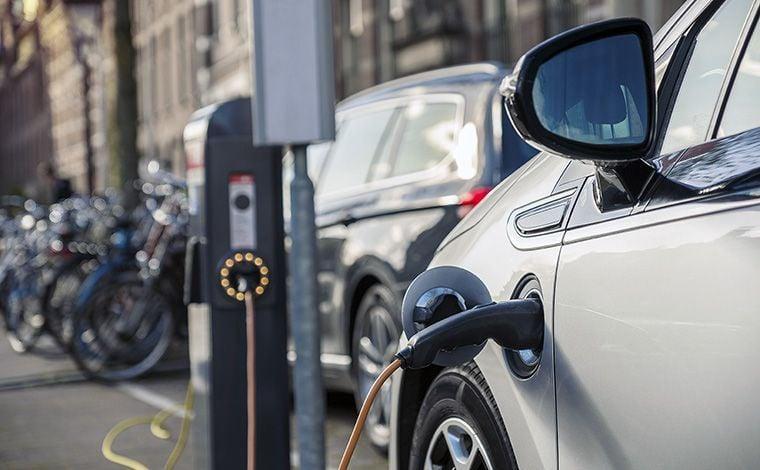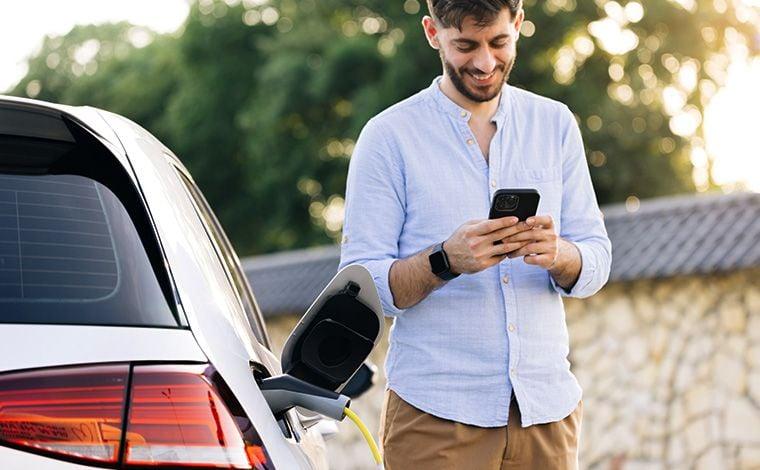Since 1 April 2019, calibration law is a particularly relevant topic for electric mobility. Since that date, charging stations must invoice in accordance with the strict requirements of calibration law in accordance with Directive 2014/94/EU of the European Parliament and of the Council on the deployment of alternative fuels infrastructure (Alternative Fuels Infrastructure Directive, AFID).
As of May 28, 2022, the latest amendment stipulates that publicly accessible charging stations must display the cost of the energy unit at the charging point. This means that displays and indicators will also be subject to the calibration regulations.
With the introduction of the calibration law into electric mobility, new questions about legally compliant charging have arisen that we would like to answer for you on this page.
1. Why is calibration law so important for electric mobility?
Every electric car driver must be able to
transparently verify how much electricity they have drawn
from a charging station and be able to trust that this value was measured
correctly. To do that, the energy must be invoiced in
kilowatt hours (kWh).
Drivers of electric vehicles
should be able to check after charging,
- how much electrical energy has been drawn,
- how long the charging process took, and
- how the price is calculated based on the measured kWh or time value.
The topic of calibration law does not play a big role for a wallbox at home, because the electricity drawn there is normally paid by the consumers themselves. However, as soon invoicing goes through a third party, such as when a company car is charged at home or at a public charging station, that charging station must correctly record all the data.
2. Which charging stations can be used for legally compliant charging?
Different variants of legally compliant charging stations are offered by manufacturers such as KEBA, ABL and EBG Compleo, among others. Several charging stations compliant with calibration law can be found in our online shop.
3. Are the requirements different for DC and AC charging stations?
Technologically, it is easy to install compliant smart meters in AC charging stations.
For DC charging stations, it is somewhat more difficult, because the appropriate smart meters are currently not readily available. But the industry is working on it, and solutions are coming soon. Currently, the smart meters in DC stations record the electricity on the DC side of the power connection. A generously rounded up 20% is taken from this amount of energy as leakage current. After the transition period however, that is no longer permissible.

4. What are the advantages of calibration-compliant charging?
Calibration laws clearly serve to protect consumers. The customer can trust that the precise amount of energy that is displayed has been transferred to their electric car.
Before the calibration law regulation, there was sometimes a real price confusion in public charging: Every operator used to charge differently, which made for non-transparent prices.
The following types of billing are now permitted:
- Purely consumption-based billing based exclusively on charged kilowatt hours
- A combination of kWh tariff plus a start-up, basic or infrastructure usage fee
- A combination of kWh rate plus a time rate, such as a parking ticket in a parking garage or lot. This tariff is also useful for preventing unnecessary blocking of popular charging points.
- A flat rate billing in the form of a monthly flat rate, comparable to a smartphone flat rate.
5. Are there any disadvantages?
It is possible that charging at public charging stations will become somewhat more expensive, because the providers and manufacturers of legally compliant hardware and software not only have to integrate this into new charging stations but also into existing ones. The costs of doing that will be passed on to the end customers where possible.
6. Will there also be flat rates?
The rate used for invoicing varies depending on the provider and the contract. For compliance with calibration law, invoicing based on kilowatt hours (kWh) will probably be the most common form of charging, because it represents the fairest and most transparent form of energy consumption. Strictly kWh-based rates are possible, as are rates that take into account the energy consumed, along with the amount of time the electric car is parked in front of the charging station. The latter should prevent highly frequented charging stations from being blocked for too long.
Flat rates have been successful for services like telephone, data rates and streaming for films and TV series. There are sure to be flat rates for charging as well. They will be particularly worthwhile for frequent drivers and for electric car owners who do not have charging options at home or at work.
Session fees, i.e. one-time set prices per charge, and purely time-based fees are no longer permissible. It will still be possible, however, to provide the electricity for free, as some supermarkets and stores already offer.
7. Can I also charge in a legally compliant way when I am abroad?
Other countries have regulations that are not as strict as in Germany, because the relevant EU directive is not as strict as the German calibration laws. In most other European countries, only an MID-compliant energy meter is currently neede
8. What data is processed by a charging station?
A legally compliant charging station records the smart meter reading as soon the user plugs the charging plug in and then again when it is unplugged. The amount of energy provided is calculated by taking the difference between those two numbers. In addition, it records the plug-in and unplugging time, as well as the user ID that is provided to the station by the RFID chip, the charging card or via authorisation from a smartphone app.
9. Who has access to the charging process data? Is my data secure?
The operator of the charging station, who is compensated for providing the infrastructure and energy, has access to the charging process data. The data is also transmitted to the electric mobility provider and to any roaming platform involved in a way that protects against manipulation. Of course, the users themselves also have access.
The data is encrypted within the charging stations and is then transmitted in private key and public key procedures. This ensures the highest possible level of data security.
What companies need to consider
| Where will charging take place? | Who is charging? | On which basis? | Billed by… | Solution required |
|---|---|---|---|---|
| on company premises | employee with private vehicle | paid | kWh | |
| on company premises | employee with private vehicle | free of charge | - | no requirements |
| on company premises | visitors | paid | kWh | legally compliant charging station |
| on company premises | visitors | free of charge | - | no requirements |
| at home | employee with company vehicle | paid | kWh | MID-certified meter |
| at home | employees and other household members with company / private car | paid | kWh | legally compliant charging station |
| at home | employee with company vehicle | paid | flat rate as per section 3 No. 50 of the German Income Tax Act | no requirements |
What you should consider when charging in shared garages
| Where will charging take place? | Who is charging? | On which basis? | Billed by… | Solution required |
|---|---|---|---|---|
| individual parking spot - charging station with power supplied through the individual apartment's electricity meter | renter or apartment owner | paid | kWh | no requirements |
| individual parking spot - charging station with power connection via shared power supply | renter or apartment owner | paid | kWh | MID-certified meter |
Conclusion:
Compliance with statutory measurement
and calibration law creates the basis for ensuring that measurement results
are correctly determined, displayed and billed. This makes charging at public
charging stations as transparent and simple as possible. As the driver, you
stop, plug in the cable, and identification and billing take place
automatically and in compliance with calibration law.
